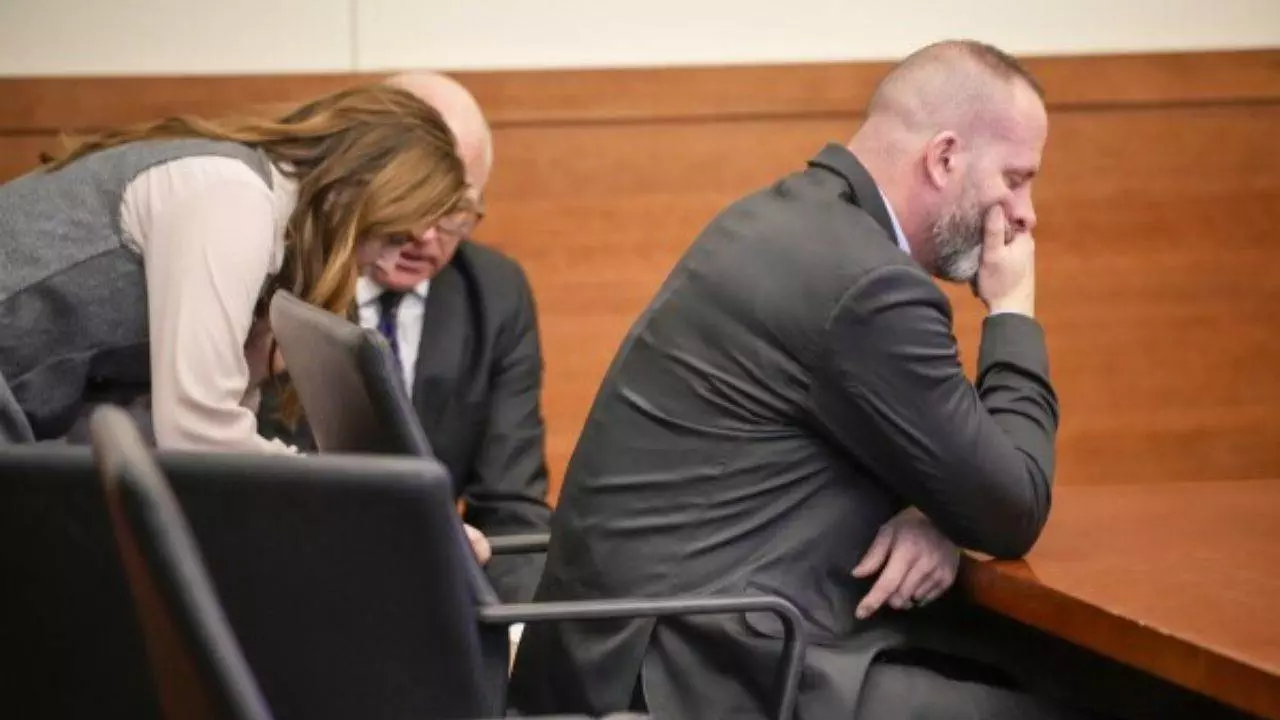Due to a jury shakeup that occurred after deliberations, the state Court of Appeals granted a new trial on Tuesday to a man who was given a life sentence without the possibility of release for a fatal shooting in a Raleigh motel room.

The state constitution’s guarantee of a “properly constituted jury” for Eric Ramond Chambers was infringed, as unanimously agreed upon by the intermediate-level appeals court panel.
Chambers was found guilty of first-degree murder and a major assault charge related to the 2018 shooting incident that resulted in Terri Blossom’s injuries and Davelle McMoore’s death.
According to Tuesday’s opinion, a juror informed Superior Court Judge Rebecca Holt that he had a scheduled doctor’s appointment the next day, which prevented him from returning to the trial once jury deliberations in Chambers’ 2022 trial began.
Holt instructed the jury to reconvene and replace the absent juror with an alternate. When the substitute took place, Chambers—who was representing himself throughout the trial—was not present in the courtroom.
Except in certain circumstances, the state constitution states that a person cannot be found guilty of any crime “but by the unanimous verdict of a jury in open court.” Additionally, as stated by Court of Appeals Chief Judge Chris Dillon in the judgement, the state Supreme Court has decided that juror substitution cannot take place after deliberations have begun.
According to Dillon, this principle is unaffected by a 2021 General Assembly law that permits the selection of a substitute juror if a founding member is unable to continue, as long as the panel is instructed to begin deliberations anew.
Because Chambers did not protest the substitute during the trial, the state’s attorney defending the conviction said that Chambers could not continue with the jury argument. Additionally, Assistant Attorney General Caden Hayes stated that the 2021 statute was compliant with the state constitution because it called for a “jury of specifically twelve, operating from the same facts and law, unanimously determine a defendant’s guilt or innocence.”
However, in a court filing, Chambers’s appellate lawyers on court appointment stated that the “legislature cannot override a constitutional provision with a statute.”
“Where a statute conflicts with our state constitution, we must follow our state constitution,” Dillon wrote in the opinion, joined by Judges Hunter Murphy and Jeff Carpenter. And such an error involving a jury trial can’t be set aside just because Chambers failed to object at the time, Dillon added.
The state Supreme Court may be asked to review Tuesday’s decision by state prosecutors.

